Combat Flight Simulator Games – The Ultimate Blend of Realism and Strategy:
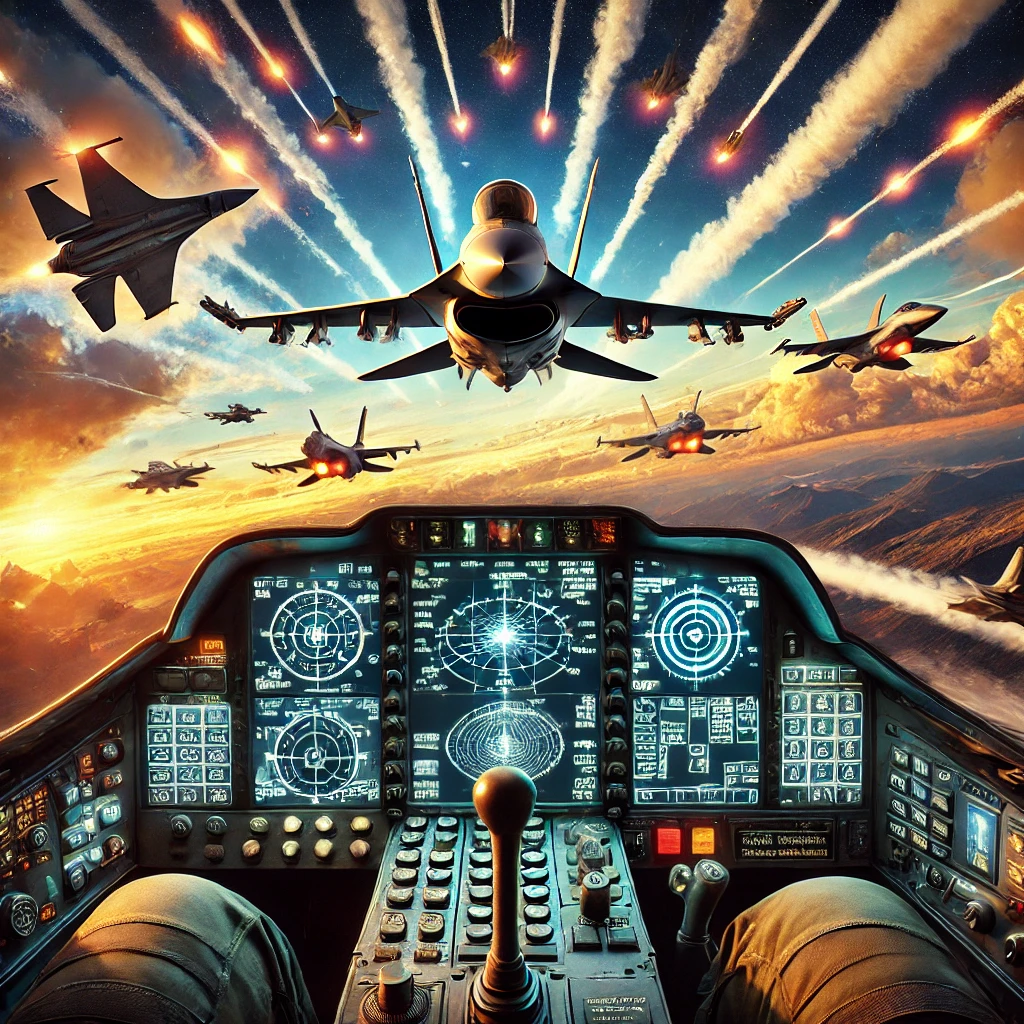
Combat flight simulator games offer an unrivaled fusion of intensity and precision, placing you directly in the pilot’s seat of military aircrafts. These games are meticulously crafted to provide an authentic high-fidelity experience, featuring true-to-life flight dynamics, enveloping sound environments, and breathtaking graphics. They appeal to a wide audience, from casual gamers looking for an exhilarating escape to aviation aficionados seeking the relentless excitement of aerial dogfights at breakneck speeds.
The origin of combat flight simulators traces back to the early days of computer gaming. Early titles like ‘Red Baron’ and ‘F-19 Stealth Fighter’ paved the way, captivating gamers with their attempt to mirror real-world aerial warfare, despite technological limitations. Over the decades, advancements in technology have elevated these games to new heights, providing incredibly detailed environments and more accurate simulation of aircraft behavior.
These games have garnered a dedicated fanbase for several reasons. First, the immersive experience—it’s not just about flying; it’s about mastering the complex controls, deploying tactics, and outsmarting enemies. Second, the historical and educational aspect—many games feature meticulously recreated aircraft and missions from significant historical conflicts, offering a glimpse into aerial warfare’s past and present. Third, the community—combat sim enthusiasts form tight-knit groups, sharing tips, mods, and experiences, making the gameplay even more engaging.
The allure of combat flight sims lies in their challenge—think of them as the ultimate blend of skill, strategy, and heart-pounding action. Perfect for both novices eager to embark on their first sortie and seasoned pilots ready to engage in fierce online battles, these games continuously offer new skills to master and challenges to conquer. Step into the cockpit, and you’ll soon find yourself addicted, always vigilant for the next thrilling encounter in the skies.
The Realism Factor: How Accurate are Combat Flight Sims?
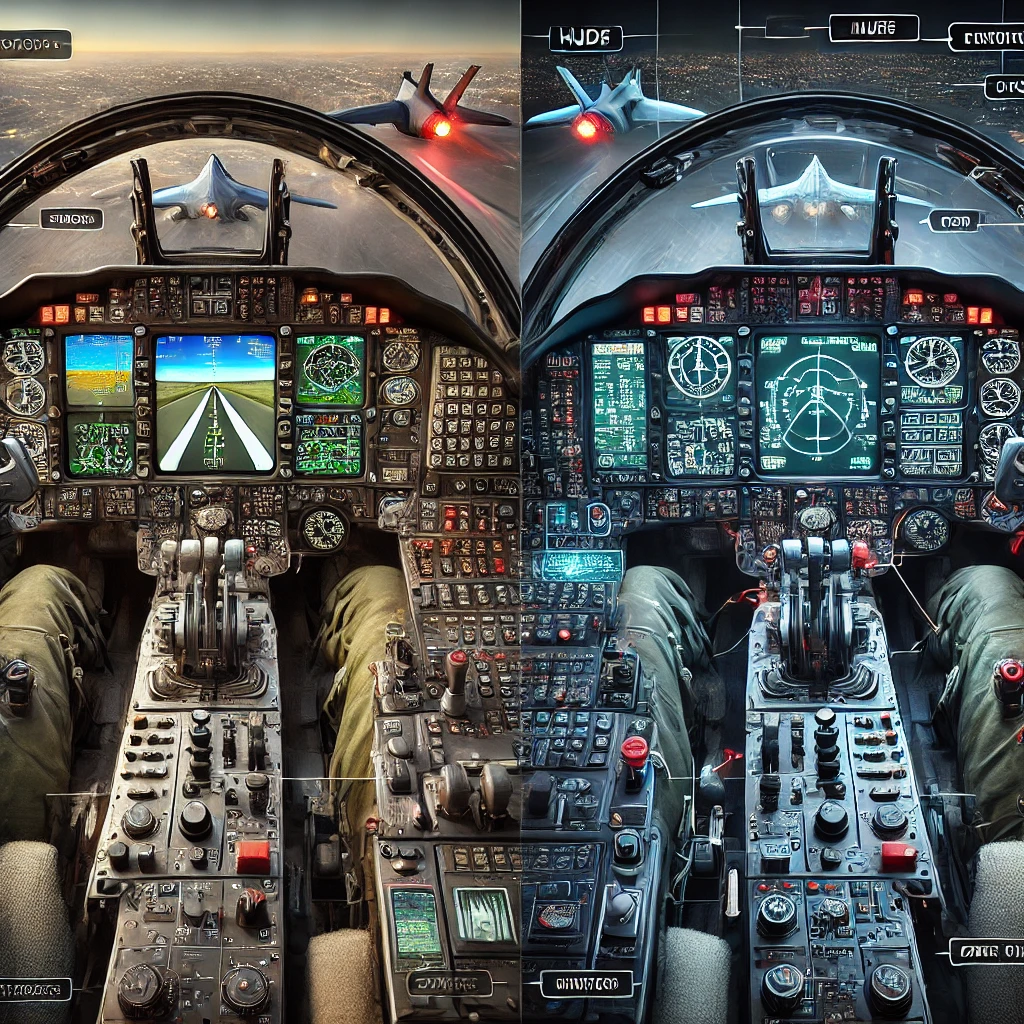
As technology advances, combat flight simulators consistently set new benchmarks for immersive gameplay. Employing advanced physics engines, these games replicate the precise dynamics of flight. The tactile feedback as the aircraft reacts to your inputs offers an unparalleled authentic experience, making each mission feel as real as soaring through the skies yourself.
One of the standout aspects of modern flight sims is the precise replication of aircraft behavior. From the roar of the engines to the nuanced handling characteristics of different planes, it’s all about capturing the essence of real-world flying. Aircraft systems, such as radar and weapon deployment, work just like in their real counterparts, adding that next level of immersion.
Combat scenarios are another area where these games shine. Developers meticulously recreate historical battles and modern-day warfare environments. Every mission is designed to test your piloting skills and strategic thinking. Whether you’re engaging in dogfights, escort missions, or ground attacks, the attention to detail is remarkable.
Flight simulators also bring realistic weather systems into the mix. Weather can be an unpredictable enemy, presenting challenges just like it would for an actual fighter pilot. Flying through a storm or dealing with crosswinds adds a layer of realism that sets these games apart.
What about the controls? Many sims offer customizable settings to match realistic cockpit layouts. Hardcore enthusiasts often use high-end joystick setups and throttle quadrants to replicate the feel of a real fighter jet. Some even go a step further with Virtual Reality (VR) headsets, which put you directly in the pilot’s seat, making that immersive experience even more real.
Top Combat Flight Simulator Games of All Time:
![]()
Some games redefine how we perceive combat flight simulators. “IL-2 Sturmovik,” for example, stands as a pillar in the genre. First released in 2001, it set a new standard with its detailed aircraft models and realistic damage physics. This game became a foundation stone for many modern flight sims. Learn more about IL-2 Sturmovik and its history.
“DCS World” is another heavyweight in the community. Known for its hyper-realistic flight dynamics and incredibly detailed cockpits, it’s like having a virtual military aviation training program on your PC. With multiple aircraft modules, it keeps expanding, offering players endless opportunities for new experiences. Explore the various modules of DCS World.
“Ace Combat 7: Skies Unknown” shifts gears towards action. While slightly more arcade-like, it delivers an excellent balance of rich storytelling and high-paced dogfighting action. Its stunning graphics and compelling narrative make it a favorite among both casual gamers and sim purists. Find out what makes Ace Combat 7 a unique blend of narrative and action.
“Microsoft Flight Simulator,” though not exclusively combat-focused, deserves a mention. The sheer scope of this simulator, with its lifelike world and accurate flight characteristics, makes it a versatile platform. Adding combat elements through mods or additional content brings out incredible possibilities for those craving a bit of action. Discover the latest updates in Microsoft Flight Simulator.
“War Thunder” merges aerial combat with ground and naval warfare, offering a versatile combat experience. Its massive multiplayer battles and extensive vehicle customization provide a different kind of thrill. The dynamic combat scenarios in “War Thunder” offer an engaging, all-encompassing combat experience. Dive into the dynamic combat scenarios of War Thunder.
Comparing these games reveals the unique flavors each brings to the table. From the hardcore realism of “DCS World” to the narrative-driven action of “Ace Combat 7,” there’s something for every type of pilot. Exploring different games helps you find what suits your style best, whether you’re a history buff, a tactical genius, or an adrenaline junkie.
** Please note: This post contains affiliate link. As an Amazon Associate, I earn from qualifying purchases at no extra cost to you.
To explore and purchase combat flight simulator games on Amazon, click here to view the selection.
User Experience: What Makes a Great Combat Flight Simulator?
Immersive graphics and sound design are crucial for any great combat flight sim. High-quality visuals make you feel like you’re really soaring through the skies, while detailed sound effects pull you into the action. From the thunderous roar of the engines to the distant clatter of anti-aircraft fire, sound design plays a huge role in shaping your experience.
Intuitive controls are another must-have. A well-designed user interface allows you to focus on the mission instead of wrestling with complicated menus and settings. Customizable control schemes let you tailor the game to your comfort level, whether you’re using a keyboard, gamepad, or high-end flight stick.
Multiplayer and community features add an extra layer of enjoyment. Competing against or working with other players creates dynamic scenarios you won’t find in single-player modes. Plus, communities centered around these games are treasure troves of tips, mods, and shared experiences. Joining a squadron or a clan can significantly enhance your skills and provide a sense of camaraderie.
Campaign modes and mission variety keep the gameplay fresh. A robust campaign mode with engaging narratives and varied missions ensures that you never get bored. You might find yourself participating in anything from historical World War II dogfights to modern-day stealth missions. The diversity of experiences available can make or break a game’s appeal.
Balancing realism with accessibility remains a crucial task for developers. While some enthusiasts demand intricately detailed simulations, others may seek more approachable gameplay. Top-tier games accommodate this diversity by featuring adjustable difficulty settings that tailor the experience to each player’s skills and preferences. Regardless of your experience level—veteran or rookie—there’s a mode just for you, ensuring everyone can enjoy the thrill of flight.
Mod support extends the life of any game. The ability to add new aircraft, missions, and even entire campaigns keeps the game constantly evolving. Modding communities are incredibly passionate, often producing content that rivals or even exceeds official updates. This fan-driven innovation adds layers of depth and replayability to any combat flight sim.
The Learning Curve: Mastering Combat Flight Sims:
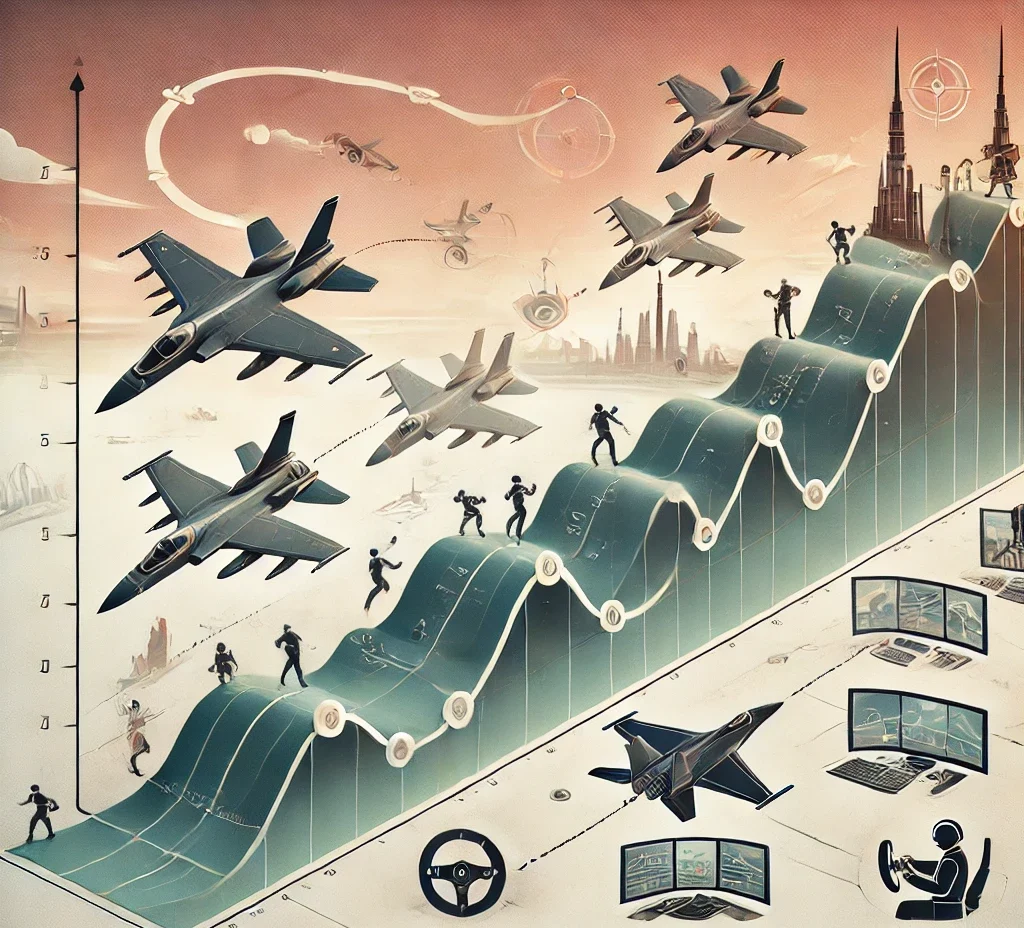
Training modes and tutorials are essential for getting started. Most games come with comprehensive tutorials that guide you through the basics. These modes let you familiarize yourself with the controls, flight mechanics, and basic combat strategies. Don’t rush through them; they set the foundation for your skills.
Developing essential skills early on can make all the difference. Situational awareness is key – always keep an eye on your surroundings and the positioning of enemy aircraft. Mastering maneuvers like the barrel roll, immelman turn, and high-G turns will give you an edge in dogfights.
Joining online communities and forums can fast-track your learning. Experienced players often share valuable tips and strategies that you won’t find in the game’s tutorials. Watching gameplay videos and joining multiplayer sessions also provide real-time learning experiences. Engaging with the community can offer support and motivation, making the learning process more enjoyable.
Advanced techniques come into play as you get more comfortable. Techniques like energy management, where you balance speed and altitude to gain a tactical advantage, are crucial for high-level play. Understanding the strengths and weaknesses of different aircraft will also help you make strategic decisions during missions.
Flight sims often simulate real-world physics and aerodynamics, so reading up on basic aviation principles can be highly beneficial. Websites, books, and documentaries on aviation can offer insights that aren’t covered in the game but can significantly enhance your understanding and performance.
Practice is non-negotiable. The more time you spend flying, the better you’ll get. Regularly practicing different maneuvers, missions, and combat scenarios will build muscle memory and sharpen your reflexes. Each flight offers a lesson, so keep pushing your skills to new heights.
Stay patient and don’t get discouraged by setbacks. Combat flight simulators can be challenging, and there will be moments of frustration. Stick with it, and you’ll find that the skills and strategies you develop will not only make you a better pilot in the game but also instill a sense of achievement and confidence.
Hardware and Gear: Enhancing Your Simulator Experience:
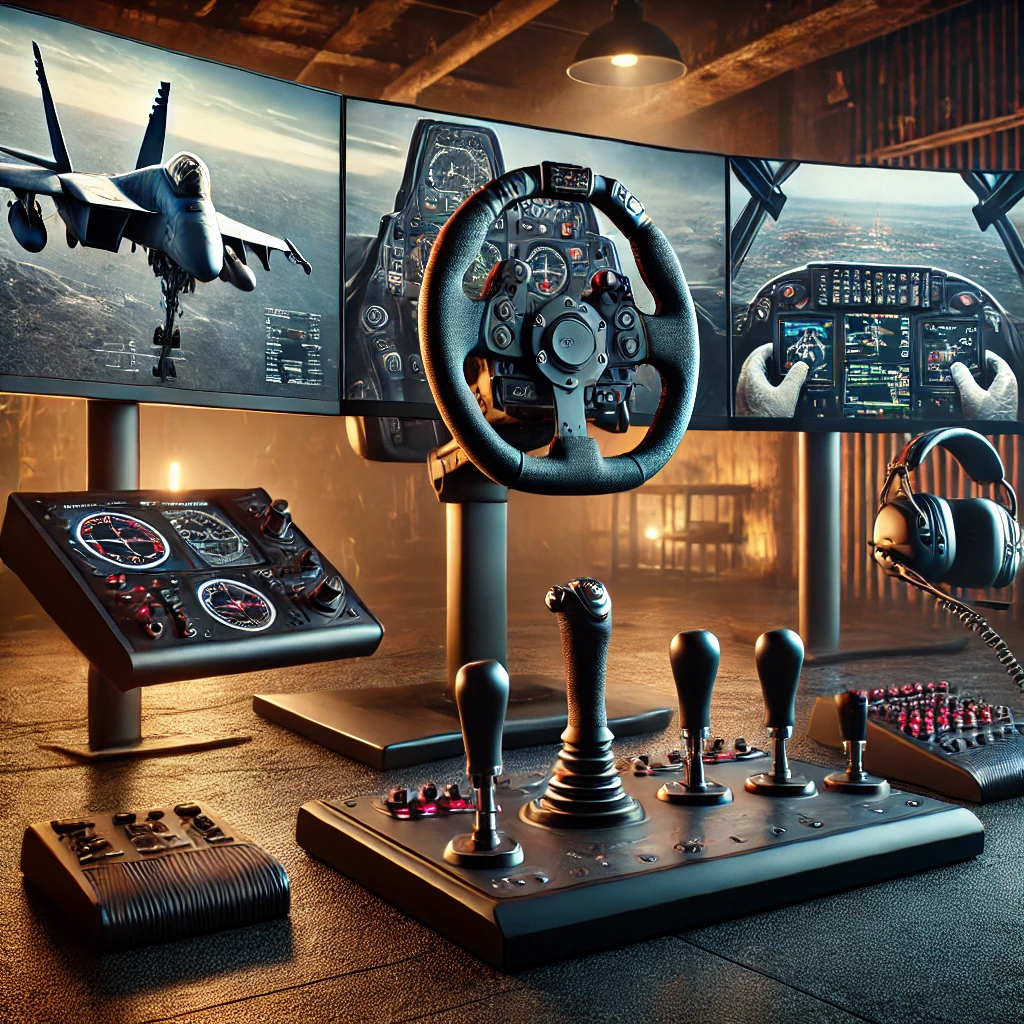
Achieving the best experience in combat flight simulators often comes down to having the right hardware. A powerful PC with robust graphics capabilities ensures that your game runs smoothly, with all the high-end visuals enabled. Look for a gaming rig that can handle demanding titles without dropping frame rates.
Joysticks and throttle quadrants take your immersion to another level. Entry-level sticks are great for beginners, while high-end setups offer precise control and a closer feel to real aircraft controls. Joysticks with force feedback add an extra layer of realism, letting you feel the g-forces and vibrations as you maneuver your plane.
Pedal sets, which simulate the rudder of an aircraft, can add another dimension to your control scheme. Separating rudder control from your joystick allows for more accurate piloting, providing a more authentic flying experience.
Virtual Reality (VR) headsets can completely change the way you experience flight sims. VR immerses you in a 360-degree cockpit view, reacting naturally to your head movements. This setup can make you feel like you’re genuinely in the cockpit, making aerial combat more immersive and intuitive. Companies like Oculus and HTC offer high-resolution headsets that are well-suited for flight sims.
Don’t overlook the importance of a good monitor or multiple-monitor setup if you’re not going the VR route. Wide or ultra-wide monitors offer a broader field of view, which is crucial for situational awareness and dogfights. Some players even use multi-monitor setups to create a panoramic view, further enhancing the immersive experience.
Flight sim rigs are another level of dedication. These usually involve building or purchasing a frame that houses all your gear, including joysticks, throttle quadrants, pedals, and sometimes even a custom cockpit seat. While it’s a more significant investment, a dedicated flight sim rig can provide unparalleled immersion and comfort for extended play sessions.
Having the right peripherals and setups drastically elevates your gaming experience. Experiment with different hardware to find what best complements your playing style and budget. Each piece of gear brings you closer to the ultimate goal—a fully immersive, realistic combat flight simulation.
The Future of Combat Flight Simulator Games:
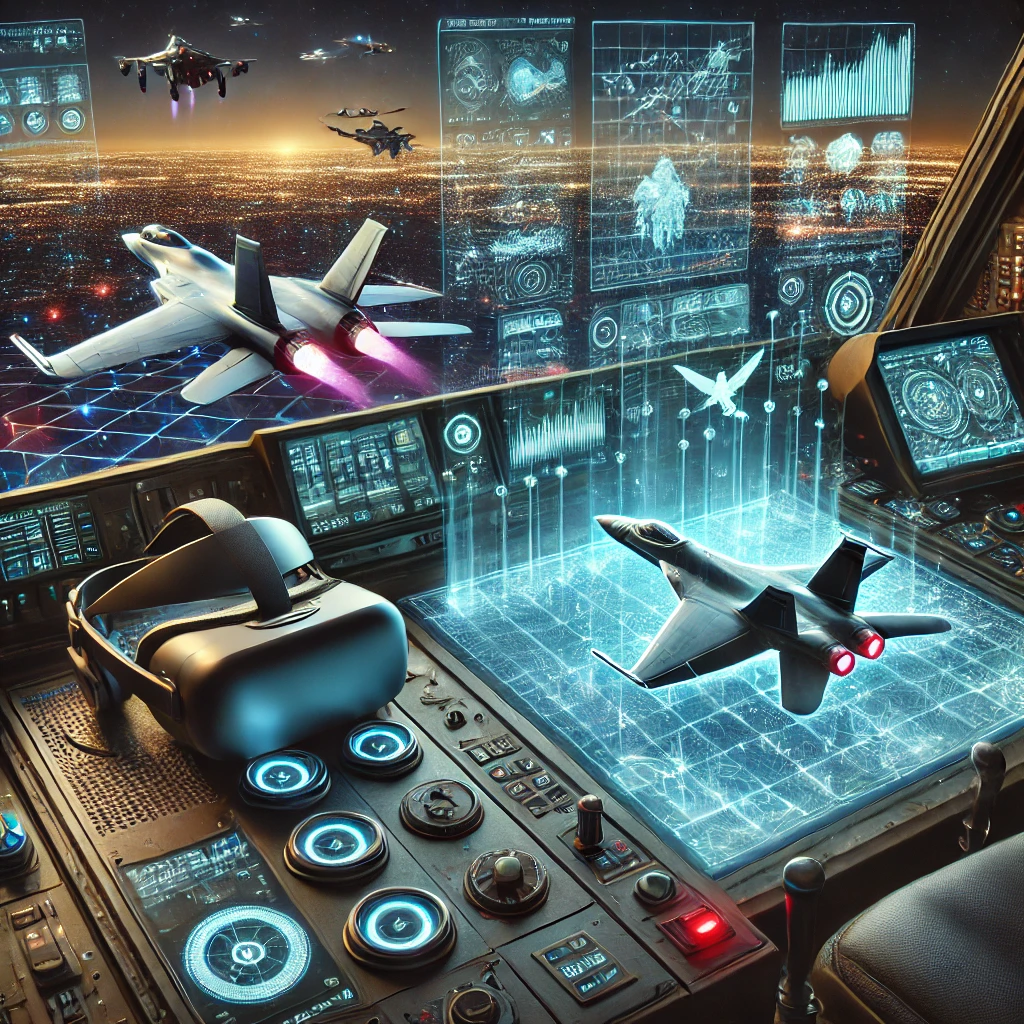
Combat flight simulators are ever-evolving, and the future looks promising. Developers are continuously pushing the envelope with new features and technological advancements. Upcoming titles promise to bring even more realistic flight dynamics, incredibly detailed aircraft models, and expansive combat scenarios. These advancements aim to create a virtual experience as close to real-world aviation as possible.
AI and machine learning are set to play significant roles in the evolution of these games. Smarter enemy and ally AI can create more challenging and unpredictable combat scenarios, requiring even greater skill and strategy. AI could also enhance training modes, providing personalized feedback and adaptive challenges based on your performance.
Virtual Reality (VR) and Augmented Reality (AR) are trending towards becoming staples in flight sims. As VR technology becomes more accessible and advanced, fully immersive games are within reach for more players. AR might also bring innovative ways to blend digital and physical environments, offering new types of interactive experiences.
Another exciting trend is the potential for combat flight sims to transition into professional training tools. With the introduction of highly realistic flight dynamics and aircraft systems, these games are sometimes used for real-world pilot training scenarios. The line between entertainment and professional simulation is increasingly blurring.
Multiplayer modes and online communities continue to grow. Developers are likely to introduce more sophisticated online features, such as large-scale cooperative missions and persistent world battle scenarios. This increase in multiplayer focus could bring about richer and more dynamic player interactions.
Modding will always have its place. Developers support and encourage community-driven content more than ever. Future games are likely to offer even more robust tools for modders, allowing them to create custom aircraft, missions, and entire campaigns. This user-generated content extends a game’s lifespan and continually refreshes the experience.
The future of combat flight simulators is bright, filled with innovation and potential. The advancements in technology, AI, VR, and community engagement promise even more immersive and captivating experiences. Whether you’re a seasoned pilot or new to the genre, there’s always something exciting on the horizon.
